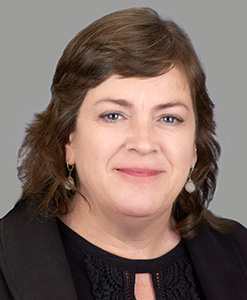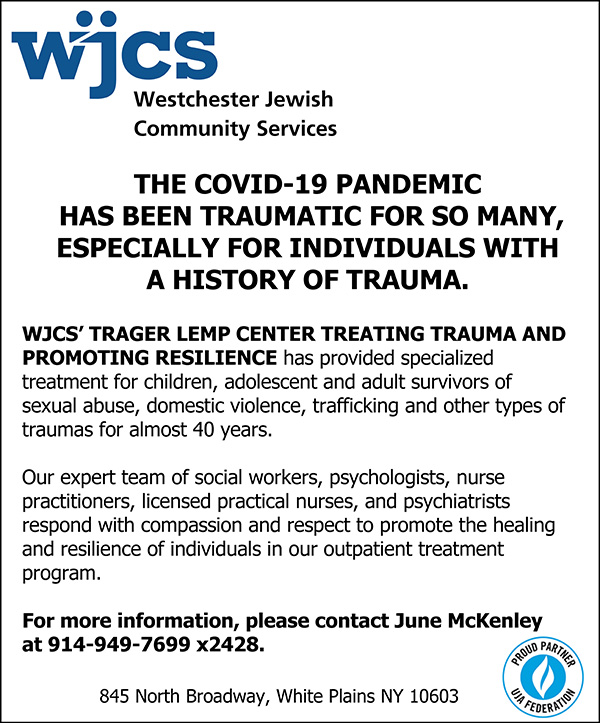One of the truths that have been exposed by the COVID-19 pandemic is that while the trauma and grief of COVID-19 and the accumulated racial injustices have been widespread, the impact has been felt more strongly in some communities. COVID-19 has been much more harmful to Black and Brown communities due to a broad lack of access to quality health care, quality housing, remote work, access to quality child care, internet accessibility, access to food, and the trauma of discrimination itself.

Liane Nelson, PhD
But COVID is only part of the struggles endured by Black and Brown communities. When the world saw the murder of Mr. George Floyd filmed on a smart phone for 9 minutes and 29 seconds, many recognized it as a time for a long overdue discussion about systemic racism. Many of our Black and Brown brothers and sisters, however, also experienced it as racial trauma. This trauma, coupled with the other challenges posed by the pandemic, leads to an understandable sense of vigilance that makes navigating one’s way in the world challenging.
At the WJCS Trager Lemp Center for Treating Trauma and Promoting Resilience, we’re very cognizant that the experience of trauma often leads individuals to blame themselves for what they experienced. It is important to provide a clear understanding of where the blame should be laid. This self-examination is difficult to do alone and best looked at as part of a community. Community has the benefit of being a major protective factor and can lead to resilience.
The COVID-19 pandemic accentuated the need for a broad, systemic examination of institutions and agencies, and their ability to support clients and staff. Using the lens of WJCS’ antiracist and trauma-informed traditions, this article examines what we, at WJCS, accomplished as an agency, and where we have yet to go. We have been working for several years on becoming a trauma-informed agency. To be trauma informed and racially equitable is aspirational. Any belief that we have arrived at our destination means that we have stopped educating ourselves. We must always strive to be better.
Both the COVID-19 virus and race-based police brutality shared the hallmarks of trauma: danger, unpredictability, and a lack of control. The framework described below allows for recognition of what trauma survivors need to heal: the restoration of safety, celebration of victories, and frequent communication to provide control and predictability.
Safety and Celebration
The first priority for any organization, particularly during stressful times, is to maintain a safe environment for its employees. This was a particular challenge for the Community Programs division of WJCS which operates 13 community-based group homes for individuals with intellectual and developmental disabilities, including former residents of Willowbrook. The needs of the residents are extensive and, even absent the pandemic, their care is complicated and challenging. The staff of the group homes consist largely of Black and Brown Direct Support Professionals who were strongly affected by the traumas of COVID and racial injustice. The clients they care for in the residences were also particularly vulnerable. These dedicated workers needed a high level of safety and protection, as they cared for residents with COVID to protect themselves, their families, and their communities. In the early days of the pandemic, when PPE was difficult to obtain, great effort was made by every level of the organization to obtain the necessary supplies. It was expensive but essential. We also recognized the sacrifice of these workers agencywide. Board members purchased lunches and dinners. Pizzas were delivered regularly. We orchestrated a “virtual” cheering session for staff working in the community residences by having hundreds of employees, board members, and volunteers on Zoom. It was a virtual noisy and emotional cheering session celebrating the courage of our healthcare heroes.
For our clinical clients, safety precautions prohibited us from delivering critical mental health services face-to-face. Telehealth instantly developed as the primary way of working with our clients. We were fortunate that pre-pandemic, our IT department had done crucial work in creating technology systems and investing in laptops and phone systems so that our clinicians could shift to working exclusively from home.
It was also important to help our clinical staff handle their own trauma as well as the secondary trauma they were experiencing in working with Westchester residents who were suffering due to the pandemic. WJCS Chief Clinic Officer Pat Lemp, our Psychology Intern on our trauma team, Dr. Jenna Hennessy, and I created and presented a webinar for staff about working at WJCS during the pandemic. Although first designed for clinicians doing clinical work, it was later modified for non-clinical staff as well. We talked about trauma, resilience, grief, navigating anxiety, not ranking our suffering, accepting our vulnerability and that we are all fundamentally doing our best, and were sure to focus on creating a dialogue. During a crisis, people want to be heard and feel connected. Facilitating conversations about how people were doing, how they were coping, and what they needed was the most valuable part of the webinars. Trauma and grief often lead to a sense of isolation. Fostering community conversations was a powerful antidote. It helped create a sense of emotional safety.
Communication to Provide Control and Stability
The importance of regular and honest communication between executive leadership and staff cannot be overemphasized. As soon as the pandemic began, our CEO, Seth Diamond, began sending emails each Friday, addressing our shared experience and expressing pride about staff activities and accomplishments, such as mobilizing food deliveries across Westchester County (made possible by a partnership between the Children, Youth and Families and Clinic divisions of WJCS), outreach to clients and community members, and the development of a Digital Equity program that provided students in Yonkers with laptops and internet access, which later expanded to adults in need across Westchester. Our CEO also shared updates about the changes in pandemic-related requirements and expectations about plans for clinics reopening. These updates were essential in promoting a sense of predictability and control for the staff. Seth included inspirational music videos or other reflective literature with each email. Always embedded in these messages was a message of support and admiration for the essential work being done by our staff.
When Mr. George Floyd was murdered, company communications focused on acknowledging our collective grief and trauma. WJCS’ Undoing Racism committee, which has held regular Lunch and Learn educational staff workshops about racism since 2003, organized Zoom sessions for open forum discussions between WJCS employees and board members about the impact of COVID and structural inequality on Black and Brown communities. These conversations were raw and sometimes painful, as colleagues addressed the racial trauma and grief that they experienced but also focused on resilience and action steps.
WJCS also entered into a partnership with Westchester YMCA’s Center for Racial Equity. A consultant specializing in diversity and racial equity held a series of focus groups over the course of two months with our staff and WJCS’ Board, to allow for a full accounting of where we are, and where we have yet to go.
The Reverend Daphne Swinton, MPA, MCH-LP, a trauma clinician, and I led a webinar for the Westchester County Trauma Committee in November 2020, as a kickoff to a new series of Trauma-Informed Supervision work groups. The presentation included a discussion about trauma, vicarious trauma, racial trauma, and self-care. A particular focus on Trauma-Informed Supervision was especially well-received. SAMHSA Trauma-Informed Supervision guidelines include: safety, trustworthiness and transparency, peer support, collaboration and mutuality, empowerment and choice, and cultural, historical, and gender issues. The challenges of incorporating these concepts, during a pandemic, with the financial pressures facing not-for-profit organizations, engendered a very thoughtful conversation. We are continually learning, and we still have work to do.
The COVID-19 pandemic has provided an unanticipated opportunity and necessity to further our understanding of trauma and resilience. Our commitment to the values of trauma-informed care and the foundational work our agency has done on undoing racism provided the guiding principles for this challenging work. WJCS worked hard to provide safety, predictability, and control for its staff and our community. These are all works in progress, and, like trauma survivors, we discovered strength and resilience at our core. We are by no means finished with this work. We will continually reevaluate whether or not we are hitting the mark, and if not, how to correct our course. We are proud of our agency values, and that we have a strong commitment to Trauma-Informed Care. That was our North Star during this pandemic.
Liane Nelson, PhD, is Chief Psychologist and Director of the Doctoral Psychology Internship Program at WJCS (Westchester Jewish Community Services). She is also Director of the Trager Lemp Center for Treating Trauma and Promoting Resilience. Contact her at lnelson@wjcs.com and by phone at (914) 949-7699 x2475.





